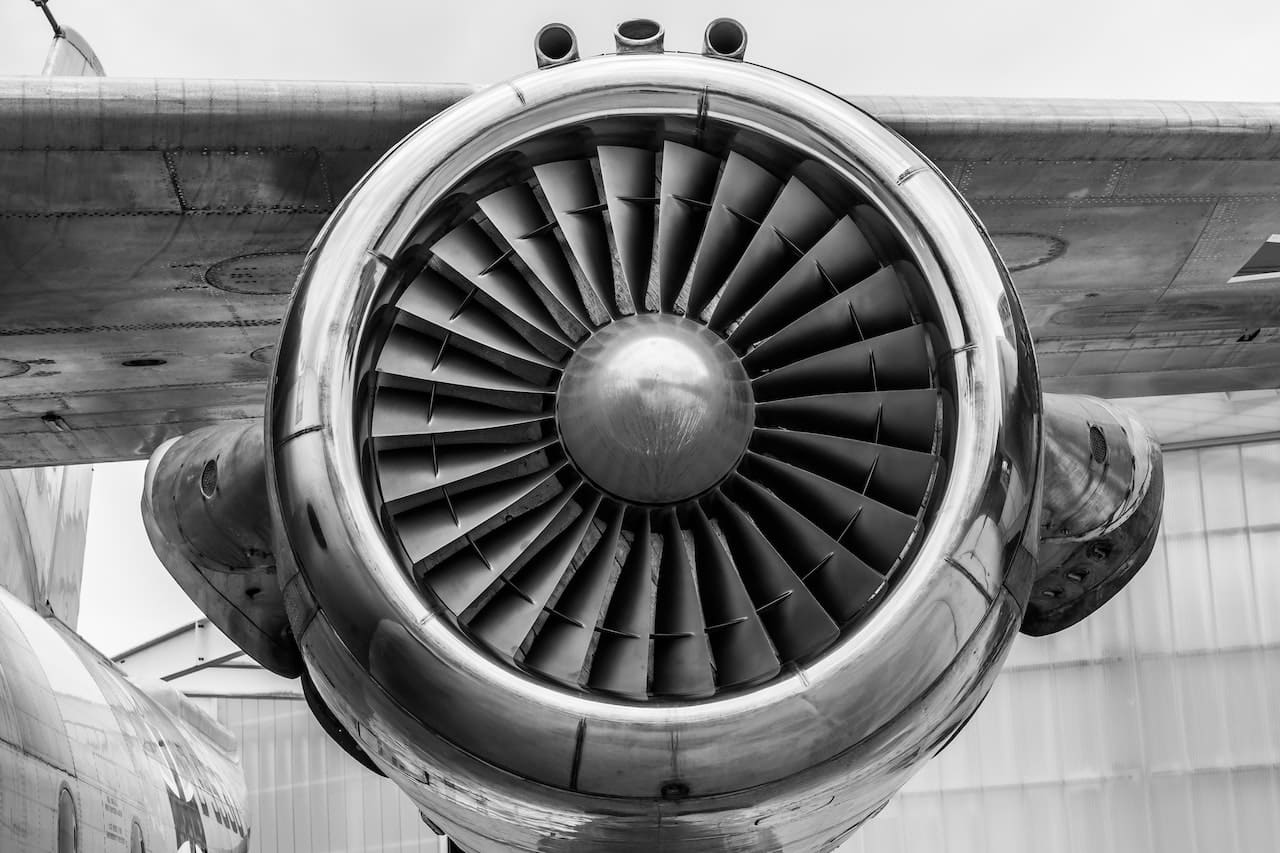Aircraft engines used in commercial aviation play a vital role in the operation of airlines and in the flying experience of passengers. These engines not only propel aircraft to high altitudes and amazing speeds, but also ensure fuel efficiency and safe air travel. From advanced jet engines to reliable turboprops, engine technology in commercial aviation has evolved significantly, providing optimal performance and an unprecedented flying experience.
Aircraft engines, also known as aero engines, are the power sources that propel aircraft. They come in various types, including piston engines and gas turbine engines, which are further categorized into turboprops, turbojets, turboshafts, and turbofans.
Designed to meet stringent safety and efficiency standards, aircraft engines offer the perfect balance of power, endurance and economy. With constant advances in technology and design, engines used in commercial aviation have become state-of-the-art engineering machines that drive global connectivity and make large-scale air travel possible. In this article, we will explore the most common engine types in commercial aviation and the key characteristics that make them indispensable in the aerospace industry.
Aircraft engine types in commercial aviation
In commercial aviation, two main types of engines are used: jet engines and turboprop engines.
- Jet engines: Jet engines, also known as turbine engines, are the most common in long-haul commercial aviation. These engines operate by compressing and burning air and fuel in a combustion chamber. The expansion of the resulting gases drives a turbine, which in turn drives a compressor that sucks in and compresses more air, creating a continuous cycle of power. Jet engines offer high power and speed, allowing aircraft to reach high altitudes and cruising speeds. They are fuel efficient and are used on large passenger aircraft such as the Boeing 747 or the Airbus A380.
- Turboprop engines: Turboprop engines combine the characteristics of jet engines and piston engines. These engines have a turbine that drives both a propeller and an air compressor. Compressed air is mixed with fuel and burned in a combustion chamber, generating high-pressure gases that drive the turbine and, in turn, the propeller. Turboprop engines are known for their efficiency on short and medium-haul flights, and are commonly used on regional and smaller capacity aircraft such as the ATR 72 or Bombardier Q400. These engines offer good performance at low altitudes and speeds, and are ideal for take-off and landing operations at smaller airports.
Both types of engines are essential in commercial aviation, each adapted for different needs and flight conditions. The choice of engine type depends on aircraft size, flight distance and other factors such as range, efficiency and ability to operate in different weather conditions.
Jet engine characteristics
The jet engine is mainly used in commercial aviation for long-haul flights and large aircraft. Some of the main advantages of the jet engine compared to the turboprop engine are as follows:
- Speed and altitude: Jet engines are highly efficient in terms of speed and altitude. They can propel aircraft to supersonic speeds in the case of high-end airliners. In addition, jet engines allow much higher cruising altitudes, providing efficiency and performance benefits.
- Load capacity and size: Jet engines are ideal for larger aircraft with higher load capacities. This makes them the preferred choice for long-haul flights and large commercial aircraft, such as jumbo jets or wide-body aircraft.
- Long-haul efficiency: Jet engines are highly efficient on long-haul flights. As the aircraft gains altitude and approaches cruising speed, the efficiency of the jet engine improves significantly, resulting in lower fuel consumption compared to turboprop engines.
- Longer range: Aircraft equipped with jet engines have a greater range and flight capability compared to turboprop-engined aircraft. This means that they can cover longer distances without the need for intermediate refuelling stops.
While jet engines have many advantages in terms of speed, capacity and efficiency on long-haul flights, turboprop engines have their own advantages on regional and shorter-range flights.
Turboprop engine characteristics
The turboprop engine is mainly used in commercial aviation for regional and shorter range flights. Some of the main advantages of the turboprop engine over the jet engine are as follows:
- Short- and medium-haul efficiency: Turboprop engines are highly efficient for short- and medium-haul flights. These engines are ideal for operations at regional airports and routes with shorter distances, where supersonic speed and extreme altitudes are not necessary. They provide an optimal combination of speed and efficiency for such flights.
- Lower fuel consumption: Turboprop engines have superior fuel efficiency compared to jet engines, especially at lower cruise speeds and lower altitudes. This makes them a more economical and cost-effective option for shorter range flights.
- Increased short runway operating capability: Turboprop-equipped aircraft can operate on shorter runways compared to jet-powered aircraft. This gives them the ability to operate at smaller and regional airports, increasing air connectivity in areas not served by large international airports.
- Lower noise level: Turboprop engines tend to generate less noise compared to jet engines, resulting in a quieter flight experience for passengers and less noise pollution in communities near airports.
In short, turboprop engines are ideal for regional and shorter-range flights, offering fuel efficiency, increased short runway capability and lower noise levels. While they do not reach the high speeds and altitudes of jet engines, they play a crucial role in regional air connectivity and access to smaller airports.
Do you want to train as a pilot? www.easbcn.com/en/become-a-pilot/
For more News and Blogs www.easbcn.com/en/blog/
